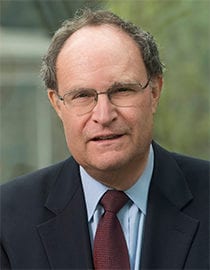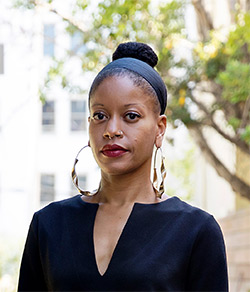
By Gwyneth K. Shaw
Lawyers and activists will gather at UC Berkeley Law — with others joining virtually from across the world — on January 23 and 24 to discuss the latest developments in gender harassment and discrimination law in California, the United States, and around the globe.
Presented by the school’s Berkeley Center on Comparative Equality & Anti-Discrimination Law, the Conference on Gender Discrimination and Harassment Law is the latest iteration of an effort by a broad swath of scholars, at home and abroad, to turn the revelations and conversations sparked by the #MeToo movement into long-term dialogue and, ultimately, systemic change.

Among the topics at the event: New developments in class action suits involving harassment claims; the latest changes and challenges to federal Title IX protections for transgender and non-binary students; analyzing intersectionality and sexual harassment, particularly in regard to disability rights; and a full panel on trauma-informed lawyering.
“The conference grew out of our work bringing together scholars and practitioners working on gender harassment,” says UC Berkeley Law Professor David B. Oppenheimer, the center’s director.
That led to the group’s 2020 book, The Global #MeToo Movement: How Social Media Propelled A Historic Movement and the Law Responded, featuring 48 authors from 28 countries chronicling how their legal systems handled sexual harassment cases.
The coalition has remained close, meeting across time zones and navigating packed schedules to keep the long-term dialogue going as a working group associated with the center. The conference, Oppenheimer says, is both a way to gather formally and the center’s main fundraising project — and it offers 13 hours of Continuing Legal Education credit for California lawyers, including six hours for the elimination of bias requirement.
“Our speakers come from all over the world, including Australia, Ireland, Kenya, Nigeria, and Sweden, but over half are California lawyers or law professors,” Oppenheimer adds.
Registration is $650 to attend in person and $495 to join remotely. UC Berkeley alums get a $100 discount on registration, as do associates of the conference’s partner organizations: The Alameda County Bar Association, Equal Rights Advocates, the National Women’s Law Center, the Impact Fund, and the Lawyers’ Committee for Civil Rights of the San Francisco Bay Area.
Delving deep
After UC Berkeley Dean Erwin Chemerinsky’s opening remarks, the first morning’s focus on Title IX, disability, and sexual harassment will conclude with a keynote address from University of Technology, Sydney, Professor Karen O’Connell, who will discuss sexual harassment as an environmental stressor and health harm and how the law should respond.
The afternoon panels will examine how to balance competing rights of religious exemptions and equality law under Title VII with a panel of civil rights lawyers — including ACLU Deputy Legal Director Louise Melling, who also leads the organization’s Ruth Bader Ginsburg Center for Liberty — as well as how investigations and litigation can be a trauma-inducing process and what’s happening with class action suits in the sector.

On the second day, panels on intersectionality and sexual harassment, restorative justice, investigating a Title VII complaint, and new developments in California discrimination law will be flanked by three keynote speeches. Penn State Dickinson Professor and Associate Dean for Antiracism and Critical Pedagogy Shaakirrah R. Sanders will discuss “When Tenure Fails to Protect Against Discrimination and Retaliation”; UC Berkeley Psychology Professor Celeste Kidd will talk about artificial intelligence and discrimination; and UC Berkeley Law Professor Khiara M. Bridges will analyze the impact of the Dobbs v. Jackson Women’s Health Organization case and its impact on women’s reproductive rights.
The timing of the conference, just as the Trump Administration takes office, isn’t lost on Oppenheimer. With significant changes expected to some federal anti-discrimination laws and policies, he says the strength and resilience of the working group is more important than ever.